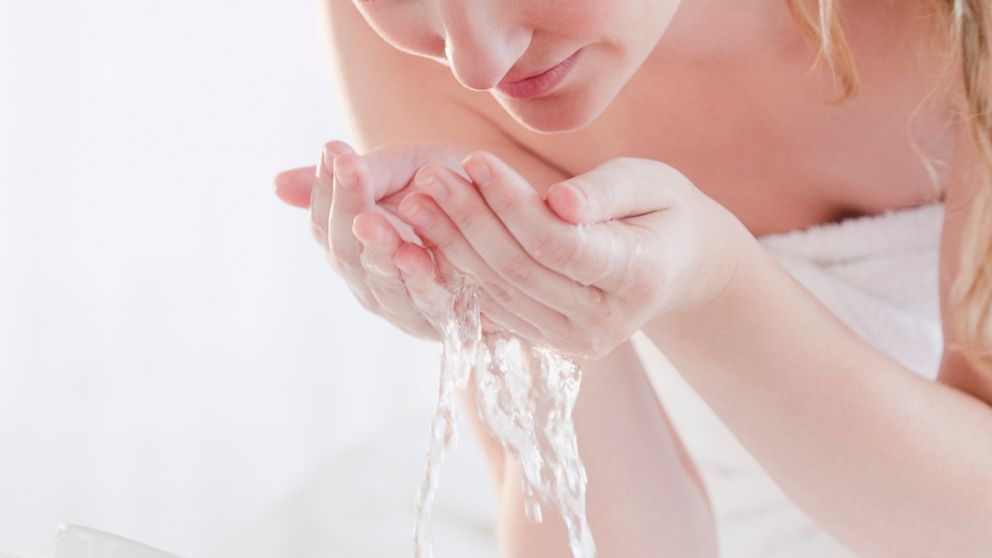3 Skincare Products You Need to Ditch
Some ingredients could be doing more harm than good.

— -- intro: You may think that as long as an item is on store shelves, it’s got a proven health and safety record. But the truth is, the long-term impact of personal-care creations aren’t always fully understood until years after they go to market.
That’s the case with several high-profile health and beauty products on the market today: Doctors and scientists are discovering that despite their popularity and “healthy” image, they may not be so good for us, or for the planet. So we asked Lisa Donofrio, M.D., associate clinical professor of dermatology at Yale University, for her take on the recent headlines.
Here’s her advice on which ingredients to avoid, plus her recommended alternatives.
quicklist: 1category: Skincare Products You Need to Ditchtitle: Antibacterial soaps and body washesurl:text: Liquid hand and body soaps that boast “antibacterial” claims often contain an ingredient called triclosan, which has been linked to antibiotic resistance and hormone disruption. (Triclosan is also present in some toothpastes and cosmetics.)
“It gets into the water supply and kills off beneficial bacteria,” says Dr. Donofrio. Plus, she adds, research hasn’t shown a true health benefit to antibacterial products. “We need to be a little dirty; it’s good to give our immune systems something to do so they don’t turn on us.”
The FDA has warned manufacturers that in the coming years, they’ll need to prove that products containing triclosan are more effective in preventing illness and reducing the spread of infection than regular soap and water, or they’ll have to reformulate their products. And Minnesota recently issued a ban on triclosan, which will go into effect in 2017.
Antibacterial bar soaps can contain a similar chemical, called triclocarban, that should be avoided as well. Instead, says Dr. Donofrio, choose bars, liquid soaps, and body washes with natural antimicrobials (she likes formulas that contain benzoyl peroxide or sulphur, which are gentler on the environment and don’t foster drug resistance), or use an alcohol-based sanitizer to clean your hands when you’re not near soap and water.
16 Hair Myths You Should Stop Believing
quicklist: 2category: Skincare Products You Need to Ditchtitle: Face and body scrubs with microbeadsurl:text: These tiny plastic beads are added to face and body washes as an exfoliant, and they help scrub away dead skin. The problem is, recent studies have shown that they also slip through water filtration systems and are making their way into our streams and oceans, potentially hurting fish and wildlife. The synthetic ingredient was recently banned by Illinois, and several other states are following suit.
In light of this news, a “natural” exofoliant may seem like the way to go—but Dr. Donofrio cautions against face and body washes that contain ground up pieces of nuts, seeds, and pits, which can have jagged edges and scratch or irritate skin. Her best alternative? “A coarse washcloth is a great exfoliator, as are scrubs that contain fine sea salt or sugar.”
13 Everyday Habits That Age You
quicklist: 3category: Skincare Products You Need to Ditchtitle: Anything with parabensurl:text: These preservatives are found in everything from shampoos to soaps to lotions, and are used to prevent bacteria growth and extend shelf life. But they are also absorbed into our bodies, and research suggests that they may be tied to hormone disruption and certain cancers.
“They bind to estrogen receptors and pose a potential health risk since they are stored in body fat,” says Dr. Donofrio. “Since we are uncertain if they pose a real or theoretical health problem, why tempt fate?”
Parabens are listed on ingredient labels—as methylparaben, propylparaben, or other words ending in -paraben—so it’s easy to choose products that don’t contain them, says Dr. Donofrio, or to limit your exposure by keeping their use to a small amount of skin area. Preservative-free products, or those with natural preservatives (such as grapefruit-seed extract, rosemary extract, or citric acid), likely won’t last as long, but if you use them regularly you should still finish them before their expiration date.
This article originally appeared on Health.com.




